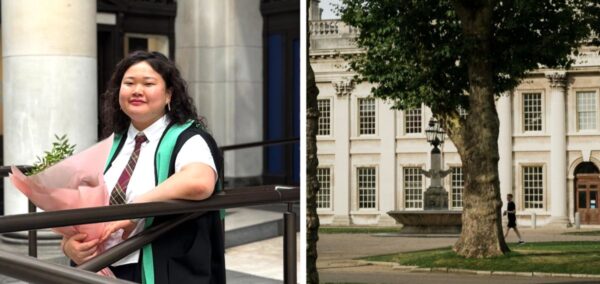
University of Lincoln vice chancellor blames government for uni’s staff redundancies
Neal Juster said the institution’s £30m budget shortage is due to lack of support and funding
The Vice chancellor of the University of Lincoln explained that it is government policy and a lack of support and funding which are to blame for the university’s financial problems.
Vice Chancellor Prof Neal Juster said that a “perfect storm” caused by government policy on universities has led to the university needing to cut costs, including staff cuts.
The University of Lincoln is expected to be running on a deficit of £30 million in the next academic year, BBC reports.
This comes after staff members at the university threatened to strike just three weeks ago after 220 jobs were put at risk due to budget cuts.
Despite this, Prof Juster insists this is not the university’s fault, saying “every university in the UK” has had to make similar choices.
However, staff striking believe that university management is to blame for recent hardships. Prof Juster explained that the institution’s financial problems were not specific to just his university, but a lecturers’ union said University of Lincoln managers had to accept they had made mistakes.
Despite the government’s assurance that it continued to provide “significant financial support” to universities, the university is forecast to be facing a £30m deficit next year, around 11 per cent of its turnover if it does not take action now.
Prof Juster said the the financial burden on the university is partly due to the freeze in tuition fees since 2017, alongside rising inflation. He explained that the important source of income brought from overseas students will drop “by between 20 and 40 per cent” in September.
Most Read
Despite this, he continued to defend the university’s management and believes it is not to blame: “Every university in the UK has made roughly the same choices”
Dr Rob Dean, acting chair of the Lincoln University and College Union (UCU) branch, is asking management to accept their mistakes. Dean told the BBC that dispute issues other universities are not experiencing as high a deficit:”Are all universities facing a £30m deficit? No they aren’t.”
When asked about the governments role in the universities financial troubles, Dean spoke about the impacts felt by students. He said: “No-one was expecting tuition fees to go up, so was there a business model in which they were expected to?
“Equally, the question about international students: was there a business expectation that the numbers would keep rising?”.
The Lincoln branch of the UCU are currently voting on staff strike action after the university launched a voluntary redundancy scheme which would see around 220 job losses, about 10 per cent of the total staff.
When asked about strike action, Rob Dean told The Lincoln Tab that he was “hopeful that management will see sense” before strike action is necessary but says that “nothing is off the table” until risk of compulsory staff redundancies are cleared.
Responding to the university’s claim that government policy was to blame for the deficit, a government spokesperson said: “We continue to provide significant financial support of nearly £6bn per year to the higher education sector, plus more than £10bn per year in tuition fee loans.
“The Office for Students’ latest report also stated that the overall financial position of the sector was sound.
“While British universities are independent from government, we are clear that domestic students should be the priority and that the purpose of student visas is education rather than immigration”.


















